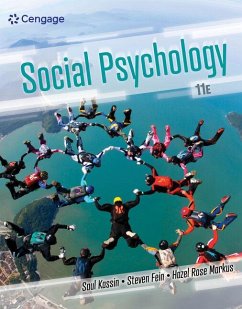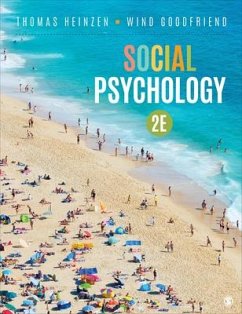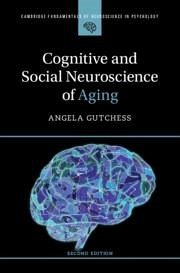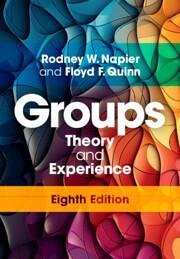Nicht lieferbar

Social Psychology
Versandkostenfrei!
Nicht lieferbar




Social Psychology, Twelfth Edition, engages students with the dynamic field of social psychology, encouraging exploration of personal passions--from sports to politics--while providing insights into the scientific principles that underpin daily interactions and behaviors, dispelling misconceptions, and demonstrating social psychology′s real-world relevance.
Saul Kassin is a Distinguished Professor of Psychology at John Jay College of Criminal Justice and Massachusetts Professor Emeritus at Williams College. Born and raised in New York City, he graduated from Brooklyn College in 1974. After receiving his PhD from the University of Connecticut in 1978, he spent time at the University of Kansas, Purdue University, the Federal Judicial Center, and Stanford University. He is an author or editor of several books--including Psychology, Developmental Social Psychology, The American Jury on Trial, Duped: Why Innocent People Confess - and Why We Believe Their Confessions, and most recently, The Pillars of Social Psychology. Interested in the psychology of wrongful convictions, Kassin pioneered the scientific study of false confessions for which he has received several awards--including the APA Award for Distinguished Contribution to Research on Public Policy and the APS James McKeen Cattell Lifetime Achievement Award for Applied Research. He has consulted on many high-profile cases, served as an analyst on all major news networks, and appeared in several podcasts and documentaries--including Ken Burns's 2012 film, The Central Park Five. Steven Fein is Professor of Psychology at Williams College, Williamstown, Massachusetts. Born and raised in Bayonne, New Jersey, he received his AB from Princeton University and his PhD in social psychology from the University of Michigan. He has been teaching at Williams College since 1991, with time spent teaching at Stanford University in 1999. His edited books include Emotion: Interdisciplinary Perspectives, Readings in Social Psychology: The Art and Science of Research, and Motivated Social Perception: The Ontario Symposium. He has served on the executive committee of the Society of Personality and Social Psychology and as the social and personality psychology representative at the American Psychological Association. His research interests concern stereotyping and prejudice, suspicion and attributional processes, social influence, and self-affirmation theory. Hazel Rose Markus is the Davis-Brack Professor in the Behavioral Sciences at Stanford University. She codirects Stanford SPARQ (Social Psychological Answers to Real-world Questions) and was previously the director of the Research Institute of the Stanford Center for Comparative Studies in Race and Ethnicity. She is a member of the National Academy of Sciences. Before moving to Stanford in 1994, she was a professor at the University of Michigan, where she received her PhD. Her work focuses on how the self-system, including current conceptions of self and possible selves, lends meaning and structure to experience. Born in England and raised in San Diego, she has been persistently fascinated by how nation of origin, region of the country, gender, ethnicity, race, religion, and social class shape self and identity. With her colleague Shinobu Kitayama, she has pioneered the experimental study of how culture and self influence one another. Markus is a member of the American Academy of Arts and Sciences and the British Academy, and she is the recipient of the APA award for Distinguished Scientific Contribution and the APS William James Award for Lifetime Achievement. Some of her recent coedited and coauthored books include Culture and Emotion: Empirical Studies of Mutual Influence, Engaging Cultural Differences: The Multicultural Challenge in Liberal Democracies, Just Schools: Pursuing Equal Education in Societies of Difference, Doing Race: 21 Essays for the 21st Century, and Clash! How to Thrive in a Multicultural World.
Produktdetails
- Verlag: Sage Publications
- 12th edition
- Seitenzahl: 736
- Erscheinungstermin: 15. März 2024
- Englisch
- Abmessung: 274mm x 208mm x 24mm
- Gewicht: 1279g
- ISBN-13: 9781071931257
- ISBN-10: 1071931253
- Artikelnr.: 69671991
Herstellerkennzeichnung
Libri GmbH
Europaallee 1
36244 Bad Hersfeld
gpsr@libri.de
Für dieses Produkt wurde noch keine Bewertung abgegeben. Wir würden uns sehr freuen, wenn du die erste Bewertung schreibst!
Eine Bewertung schreiben
Eine Bewertung schreiben
Andere Kunden interessierten sich für







